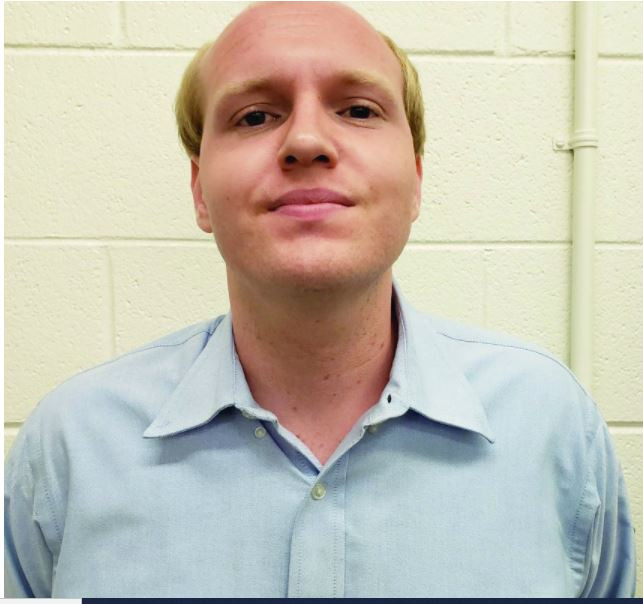Marshall avoids trial, pleads guilty to third degree felony

ALAMOSA -- In a last-minute resolution presented in court at almost the same time jury selection was scheduled to begin in his trial, James Marshall has pled guilty to committing a third-degree felony in the 2020 Main Street shooting of Danny Von Pruitt in Alamosa. In the state of Colorado, a third-degree felony carries a minimum four years to a maximum twelve years in prison with a mandatory five-year probation upon parole.
“Mr. Marshall accepts responsibility for what he did,” said Randy Canney, Marshall’s attorney, after knowledge of the resolution was made public. “He feels very badly that he hurt someone.”
“Mr. Marshall was charged with a third-degree felony. He pled guilty to a third-degree felony,” DA Payne said of the resolution.
Payne’s statement could be construed as misleading. Marshall had actually been charged with a slew of crimes, including two felony three charges, one felony four charge, two felony five charges, a second-degree misdemeanor charge and a third degree misdemeanor.
But DA Payne’s statement was not referencing the charges Marshall was facing so much as the amount of time Marshall will serve in prison.
And prison time was the top priority for the DA’s office in reaching a resolution.
“Even if Mr. Marshall had been convicted of all seven charges, there was only one victim, so sentencing would have been concurrent,” Payne said, meaning all the sentences would have been served at the same time as opposed to one sentence following another.
By Marshall agreeing to plead guilty to a third-degree felony, the “highest charge” of all charges that were filed, he is agreeing to the maximum range of sentencing he could have received.
That is not to say that DA Payne did not make concessions in the resolution, something he readily admits.
Three of the charges were filed along with “sentence enhancers”, a legal term which notes that the crime committed was one of violence and deserving of a longer potential maximum sentence. The crime of violence attached to the two felony three charge(s) would have increased the maximum sentence to sixteen years instead of twelve.
DA Payne also agreed to an “Alford Plea” which included a “waiver of factual basis.” This is a frequent but not commonly known legal agreement that allows for the defendant to plead guilty to a crime he did not commit while also agreeing to accept the punishment handed down by the court without going through the entire process of a trial by a jury.
In this case, despite no one having died in the crime, James Marshall pled guilty to Tampering with the body of a deceased person, a class three felony carrying the four-to-twelve-year sentence.
This case has caused some controversy from the beginning as the crime was committed in early evening in early summer in full view of a large group of people. It was also captured on at least one, if not more, video cameras.
Marshall was, at least initially, convinced that Pruitt had – or was going to – hit Marshall’s wife with his Dodge Ram pickup truck when she was among a group of protesters at a busy intersection in downtown Alamosa. Marshall’s claim when he was put under arrest is that he shot Pruitt to stop him from injuring his wife and others. However, the videotape allegedly showed something different.
Likewise, Randy Canney had indicated, months ago, that he planned on “the defense of others” in his defense of James Marshall.
While Canney never veered from that defense in his conversations with the Courier over the ensuring months, the persistent effort to find a resolution suggests that at least the defense did not want the case to go to trial.
In a conversation just hours after the resolution, DA Payne voiced some hesitation, too, not about the case, itself, but about the circumstances under which it was going to be held.
“We put in certain conditions because of COVID – separating the jury pools, social distancing, the requirement to wear masks. All of those factors are appealable,” he said. In other words, even if Marshall had been found guilty, those circumstances in court could have paved the way for Marshall to appeal the verdict.
Also, while James Marshall has taken responsibility for his actions and has expressed regret for his actions, the Alford Plea would suggest that he was unwilling to plead guilty to the crime. It is only speculation as to why.
“If he might be thinking about his future,” Payne said, “I think that most people look at a person’s history and see a felony three. That’s it. Not too many people ask ‘how many felony threes did he have?”
The victim, Danny von Pruitt, who was in court at the plea hearing was not quite so accepting. According to those who were present, Pruitt was in strong opposition to the resolution and made a fierce and “lengthy statement” to the judge.
“Danny is very angry,” Payne admits. “He wanted more. And he’ll be able to make that same statement at the sentencing hearing.”
That decision is up to Judge Gilbert Martinez, who is presiding in the case.
When asked about his perspective of the case, Canney paused before answering. “This was a very tough case. Nobody’s happy.”
When asked the same question, Payne was more pragmatic. “Marshall is going to spend time in prison. That was my stipulation – it’s even stated in the plea deal, and both parties have agreed. He’s going to spend time in prison. It’s up to the judge to decide how long. Aside from that, all I can say is that it’s over. It’s done. And it can’t be appealed.”
The sentencing hearing is scheduled for October 25, 2021.



